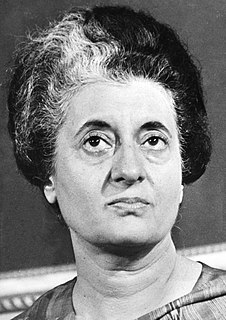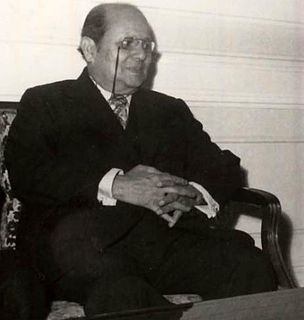 W
WIn India, "The Emergency" refers to a 21-month period from 1975 to 1977 when Prime Minister Indira Gandhi had a state of emergency declared across the country. Officially issued by President Fakhruddin Ali Ahmed under Article 352 of the Constitution because of the prevailing "internal disturbance", the Emergency was in effect from 25 June 1975 until its withdrawal on 21 March 1977. The order bestowed upon the Prime Minister the authority to rule by decree, allowing elections to be suspended and civil liberties to be curbed. For much of the Emergency, most of Indira Gandhi's political opponents were imprisoned and the press was censored. Several other human rights violations were reported from the time, including a mass forced sterilization campaign spearheaded by Sanjay Gandhi, the Prime Minister's son. The Emergency is one of the most controversial periods of independent India's history.
 W
WBaroda dynamite case is the term used for the criminal case launched by the Indira Gandhi government in India during the Indian Emergency against the opposition leader George Fernandes and 24 others.
 W
WDev Kant Barooah was an Indian politician from Assam, who served as the President of the Indian National Congress during the Emergency (1975–77).
 W
WThe 42nd amendment, officially known as The Constitution Act, 1976, was enacted during the Emergency by the Indian National Congress government headed by Indira Gandhi.
 W
WIndian National Congress (Requisitionists) was created in 1969; it was created and led by Indira Gandhi. Initially this party was known as Congress (R), but it soon came to be generally known as the "New Congress".
 W
WThe Janata Party was an amalgam of Indian political parties opposed to the Emergency that was imposed between 1975 to 1977 by Prime Minister Indira Gandhi of the Indian National Congress. In the 1977 general election, the party defeated the Congress and Janata leader Morarji Desai became the first non-Congress prime minister in independent modern India's history.
 W
WHans Raj Khanna was an Indian judge, jurist and advocate who propounded the basic structure doctrine in 1973 and upheld civil liberties during the time of Emergency in India in a lone dissenting judgement in 1976. He entered the Indian judiciary in 1952 as an Additional District and Sessions Judge and subsequently was elevated as a judge to the Supreme Court of India in 1971 where he continued till his resignation in 1977.
 W
WMinerva Mills Ltd. and Ors. v. Union Of India and Ors. is a landmark decision of the Supreme Court of India that applied and evolved the basic structure doctrine of the Constitution of India.
 W
WRaj Narain was an Indian freedom fighter and politician. He won in a famous electoral malpractice case against the then Prime Minister Indira Gandhi, which led to her disqualification and imposition of Emergency in India in 1975. He defeated Indira Gandhi during the 1977 Lok Sabha elections.
 W
WJayaprakash Narayan, popularly referred to as JP or Lok Nayak, was an Indian independence activist, theorist, socialist and political leader. He is also known as the "Hero of Quit India Movement" and he is remembered for leading the mid-1970s opposition against Prime Minister Indira Gandhi, for whose overthrow he had called for a "total revolution". His biography, Jayaprakash, was written by his nationalist friend and an eminent writer of Hindi literature, Rambriksh Benipuri. In 1999, he was posthumously awarded the Bharat Ratna, India's highest civilian award, in recognition of his social work. Other awards include the Magsaysay award for Public Service in 1965.
 W
WThe Rajan case refers to the death of P. Rajan, a student of the erstwhile Regional Engineering College, Calicut, as a result of torture in local police custody in Kerala during the nationwide Emergency in India in 1976, and the legal battle that followed, which brought out the facts of the incident to the public. His remains are yet to be recovered.
 W
WJagmohanlal Sinha was an Indian judge who served in the Allahabad High Court. He is best known for his 1975 ruling in the State of Uttar Pradesh v. Raj Narain lawsuit in which he invalidated the election of Prime Minister Indira Gandhi.